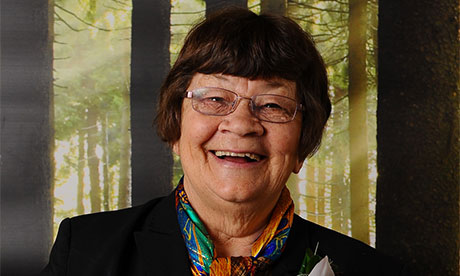Whatever we say about suffering will be largely subjective. It will come from our life experience and our beliefs.
My brokenness will relate to the brokenness out there.
Some will call that projection. Others will call it empathy.
My own journeys through crucifixions and resurrections will prompt me to help others find the freedom of the empty tomb.
That’s how it works.
On the other side of brokenness, we learn that the fruits of pain are wisdom and compassion.
I believe this growth process is compulsory for all of us.
I could ask you now, to think back 10 or 20 years and remember a time when you felt so broken you thought your life would never come together again.
You were filled with loss, grief, a sense of non-being.
Remember?
When you had grown past the resentment that floods us at such times, what happened?
You may well think now, that your brokenness was a gift from God.
You came out of it a much larger soul with a wisdom you could not have otherwise gained.
But this belief is often at odds with a pain-avoidance society.
The popular view is to avoid brokenness at all costs.
We project it out there by blaming someone else. We fill life with analgesics to hide the symptoms. Instead of going through the process, we are told we should dodge it.
The truth is, we can’t avoid brokenness, but we can become stuck in it.
We can fail to grow.
To use Easter imagery, the stone does not roll away from the tomb.
So how do the brokenhearted, make that journey with Jesus from crucifixion to resurrection?
If we accept the view that all of life is a growth struggle, then we realize that most of us need a companion in our brokenness.
We don’t want to be disempowered by a pain-avoidance system.
In the parables of nature that are all around us, we know what happens if we peel the shell away from the hatching chick. If we help the butterfly out of its chrysalis, it too will die.
What do I require of a companion to my brokenness?
First of all, to be there. To be present. To have time for me.
Some resurrections are a while in coming.
The companion needs to understand this is something I must journey through.
It’s what I was born for.
Remember when Peter tried to protect Jesus and Jesus replied, “Get behind me, Satan?”
Jesus knew that this particular temptation to pain avoidance was evil.
We too, need to trust the crucifixion/resurrection process.
I need a companion who will not “should” all over me. He or she has been through the same kind of brokenness and understands the three stages of the journey – crucifixion, tomb, resurrection.
My companion will gently remind me that the only way through loss, grief, pain, is to travel through it without bitterness or resentment.
Brokenness, paradoxically, is the way to Wholeness.
- Joy Cowley is a wife, mother, grandmother, great-grandmother and retreat facilitator.
- Image: Marlborough book festival
